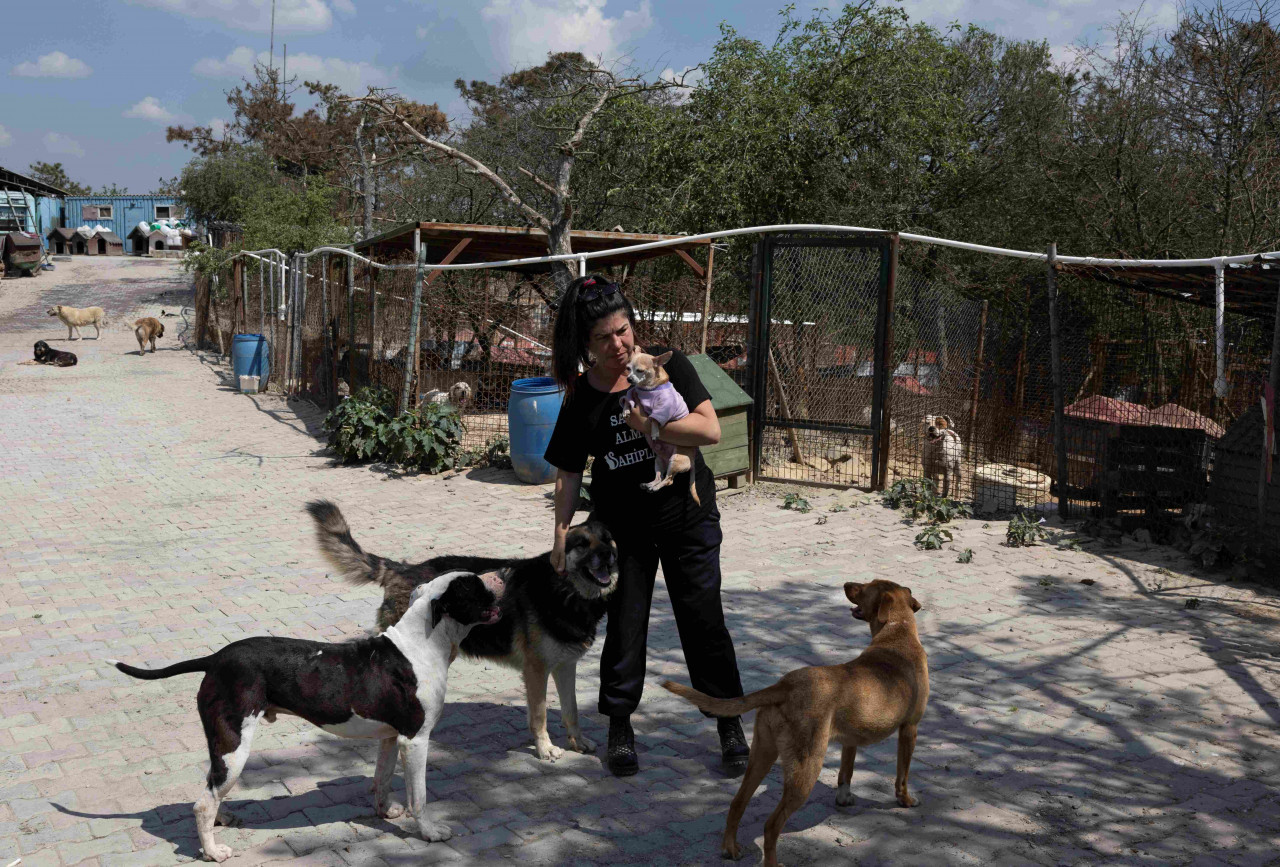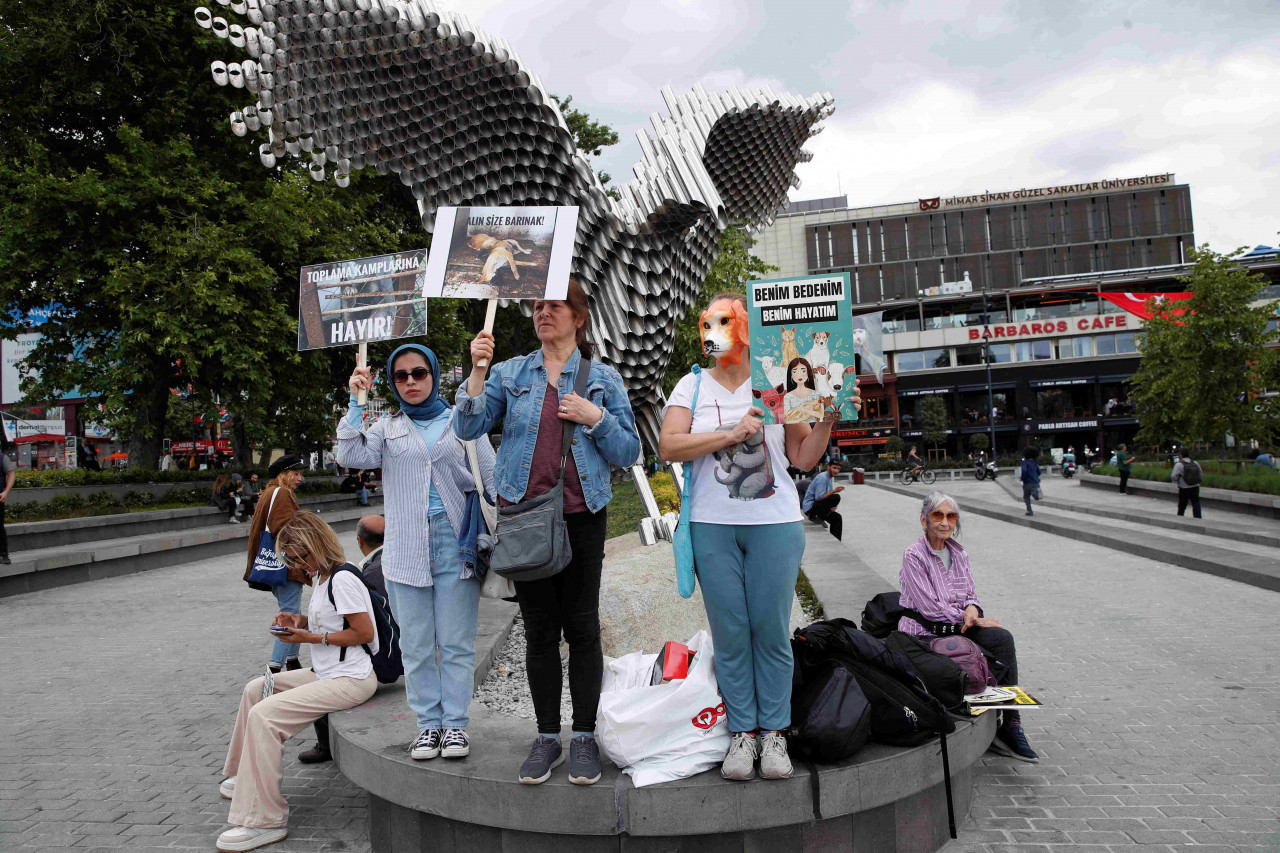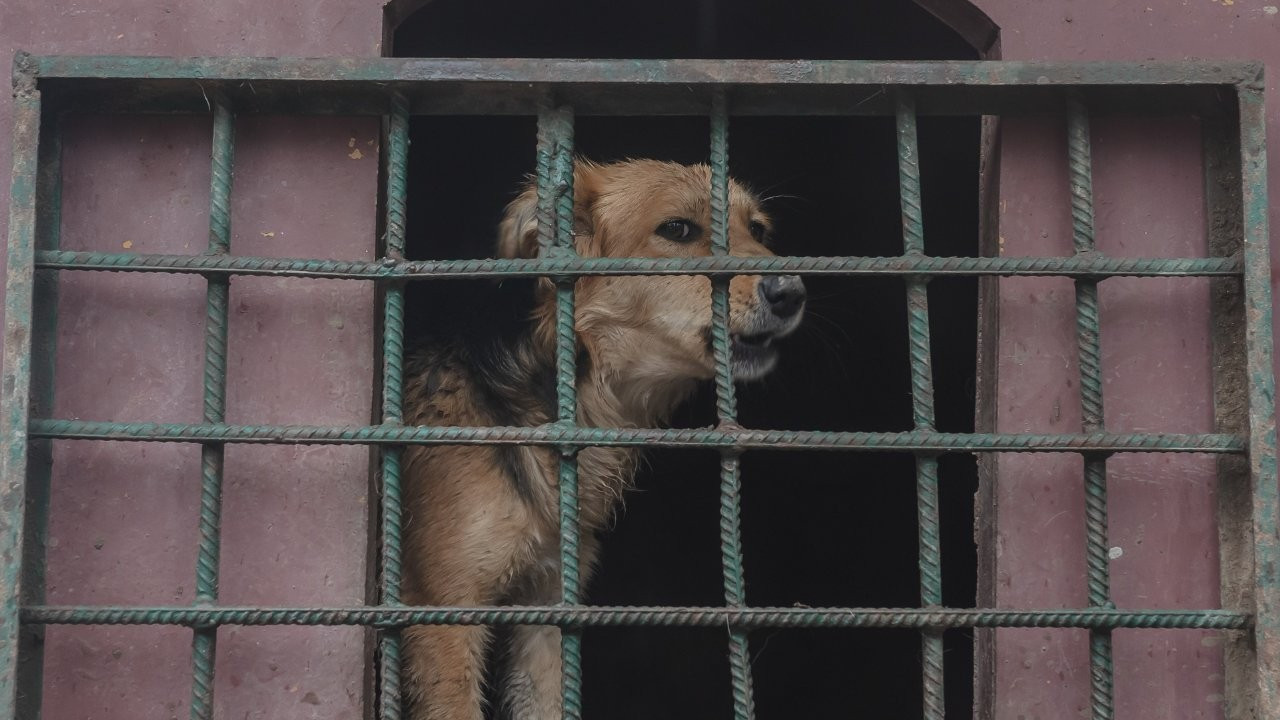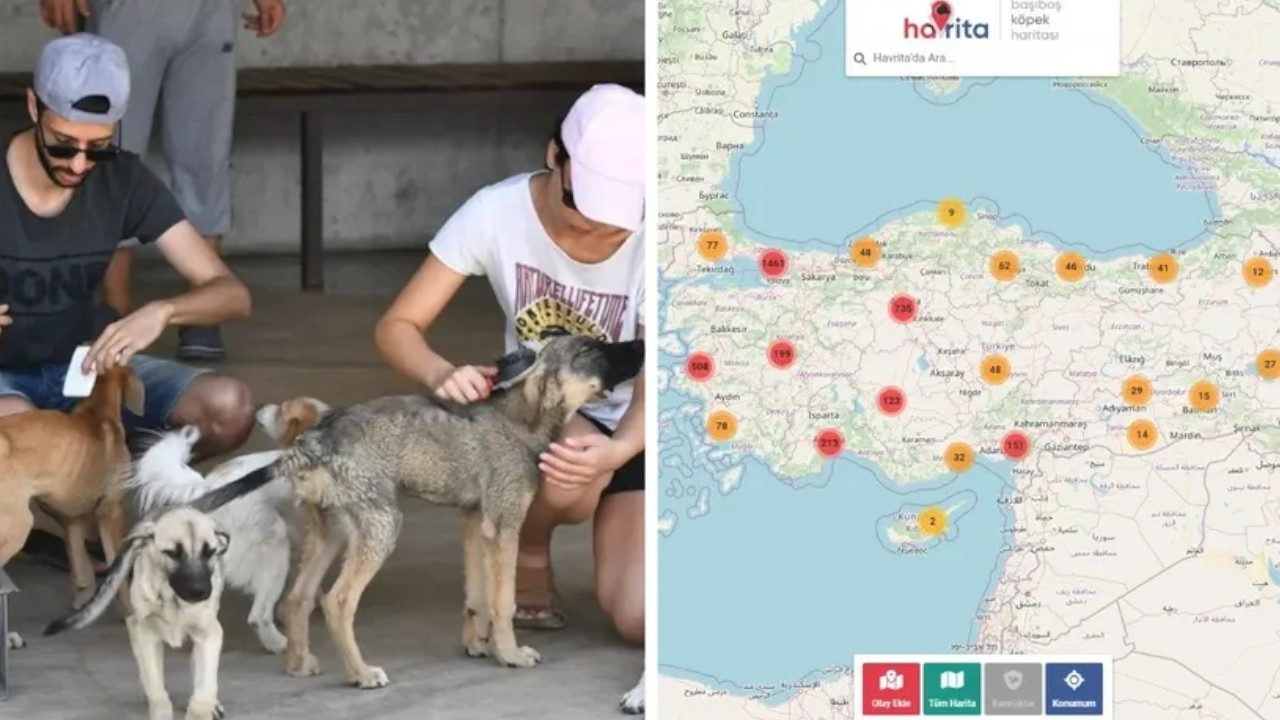Turkey's plan to remove stray dogs from streets hits raw nerve
Ankara has drafted new legislation aimed at removing stray dogs from the streets, citing concerns about attacks, road accidents, and the spread of rabies. However, this move has struck a nerve among animal-loving Turks who fear it could result in the euthanization of many dogs.
Reuters
Dogs rush over and greet Nilgul Sayar when she arrives by car to feed them in the countryside near Istanbul, one of many Turks with affection for Turkey's estimated four million stray dogs, whose fate now lies in the government's hands.

Ankara has drafted legislation to get them off the streets, citing concerns about attacks, road accidents and rabies. It has touched a raw nerve among animal-loving Turks who fear it will lead to many dogs being euthanized.
The bill, set to be presented to parliament in the coming days, has also drawn objections from the main opposition party, which is firmly opposed to dogs being put down.
Sayar and other activists say authorities are to blame for letting dog numbers surge due to insufficient neutering in the last 20 years, describing the plan as unworkable.
"They say they will collect the dogs from the streets, but there is no capacity to take them all," she said at a shelter she set up for dogs - many lame, old or abandoned pets - unable to survive in the countryside where she also cares for strays.
Pro-government media have highlighted dog attacks and said the bill envisaged putting down stray dogs unclaimed after 30 days at a shelter. But a survey by pollster Metropoll said only 2.7% of respondents supported euthanisation.
There is widespread affection for street animals in Turkey.
One dog, Boji, became well known as a regular commuter on Istanbul ferries and another, Tommy, has been immortalised with a statue. Many people put out food and water for dogs and cats.
President Recep Tayyip Erdoğan on May 29 sought to calm fears about dogs being put down.
"We want all animals taken into shelters to be adopted," he said in parliament. "If we can achieve this, we think there will be no need for the next step."
But the task is immense in terms of shelter space, neutering and finding homes for dogs.

Istanbul's municipality has a campaign to house stray dogs and vet Dilara Berk at an animal rehabilitation center said there was rising interest in its scheme.
The "Semtpati" app features photos and information on dogs, but the scale is limited. In 2023, 375 dogs were adopted under the scheme and another 103 so far this year.
Government cites 'growing complaints'
Erdoğan said the government is responding to complaints about stray dogs. He spoke about the need to act in December after a 10-year-old was seriously hurt by stray dogs in Ankara.
The boy was discharged from hospital three months later and his father Halil Yilmaz said his son is still having daily treatment and will have more surgery in July.
"We don not want stray dogs on the streets. The attackers, those with rabies and other diseases should be put to sleep," he said. "I am against euthanizing normal, healthy dogs as long as our streets become safe," he said, saying they should be kept in shelters.
The government also cited a growing risk of rabies and said collisions with animals caused 3,500 road accidents in the last five years. State media cited a government survey saying 83.6% of respondents saw stray dogs as a problem.
But activists evoke a previous, grim attempt to deal with the issue in 1910, when 80,000 dogs were sent to an islet off Istanbul, dying of hunger, thirst or killing each other.
Animal Rights Federation Chairman Ahmet Kemal Şenpolat said the solution was nationwide neutering. "We want the population to be decreased, but in a humane way," he said.
An average of 260,000 dogs were neutered annually in recent years, insufficient to have a significant impact.

 Turkish parliament to vote on 'euthanasia for stray dogs' billDomestic
Turkish parliament to vote on 'euthanasia for stray dogs' billDomestic 73-year-old animal rights activist arrested in Turkey for sharing images of animal torturersDomestic
73-year-old animal rights activist arrested in Turkey for sharing images of animal torturersDomestic Turkish court blocks access to map showing location of stray dogs after public outcryDomestic
Turkish court blocks access to map showing location of stray dogs after public outcryDomestic